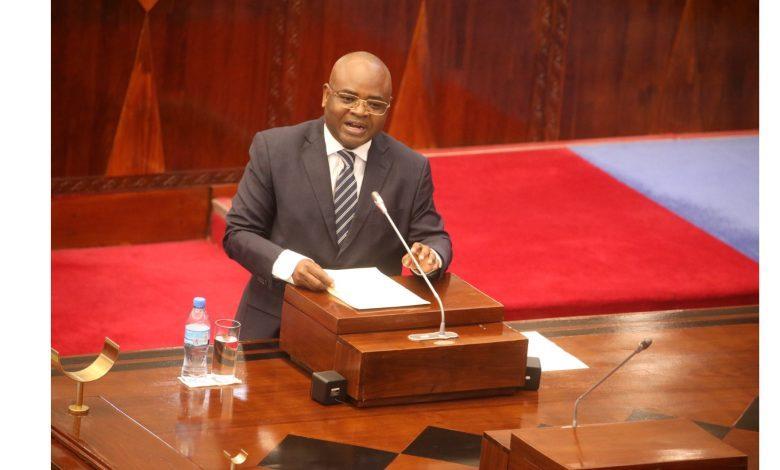Africa-Press – Tanzania. THE Minister for Investment and Planning, Prof Kitila Mkumbo, has affirmed that the development of the National Development Vision 2050 (Vision 2050) has engaged a wide range of stakeholders including political parties to ensure their manifestos align with Tanzania’s long-term development agenda.
Prof Kitila made the remarks in Parliament while responding to a question from Kawe MP, Josephat Gwajima (CCM), who inquired about the measures taken by the government to synchronise political party manifestos with the national development vision.
He explained that on 21 August 2023, the Registrar of Political Parties convened a consultative meeting bringing together all permanently registered political parties in Tanzania.
The purpose of the meeting was to provide party leaders with the opportunity to contribute their views and input on the draft Vision 2050.
During the session, political leaders exchanged insights and reached a consensus that their future party manifestos particularly those for the forthcoming general elections would reflect the themes and objectives outlined in the national vision.
“Therefore, the government believes that political parties will honour the agreements reached and fully incorporate the content of the draft Vision 2050 in the preparation of their election manifestos,” Prof Kitila stated.
He added that the government will maintain close collaboration with political parties and other key stakeholders to ensure all manifestos are aligned with the country’s long-term development plans.
According to Prof Kitila, this approach is vital in fostering national unity and cohesion, irrespective of which political party holds power.
He emphasised that Vision 2050 serves as a comprehensive roadmap for Tanzania’s transformation, while party manifestos are expected to act as essential instruments for implementing the vision.
The Minister highlighted that harmonising party manifestos with Vision 2050 ensures continuity and consistency in development efforts, minimising disruptions or policy shifts caused by political transitions.
Furthermore, he said the initiative aims to build a shared national understanding of development priorities, enabling citizens to track progress effectively and hold leaders accountable regardless of their political affiliations.
“By harmonising manifestos with the National Vision, we create a stronger foundation for inclusive development based on longterm strategies that transcend electoral cycles,” Prof Kitila concluded.
Supporting the Minister’s statements, Dr Fred Msemwa, Executive Secretary of the National Planning Commission, recently emphasised the critical role of the private sector in achieving Vision 2050 objectives.
“The private sector cannot be sidelined; it must play a leading role in accelerating our national development,” Dr Msemwa asserted, adding that strong public-private collaboration is essential to transforming Vision 2050 into reality.
He explained that the draft Vision, now in its final stages of approval, was developed through extensive public consultations across Mainland Tanzania and Zanzibar, reflecting the aspirations of Tanzanians for a better future.
“The draft reflects the hopes and expectations of Tanzanians regarding the country’s future. We gathered insights from citizens nationwide, and the Commission has refined the document to ensure those voices are clearly represented and actionable,” he said.
Among the key concerns raised by the public were the need for improved healthcare services, enhanced road infrastructure, and a more proactive government committed to inclusive and sustainable development.
For More News And Analysis About Tanzania Follow Africa-Press







